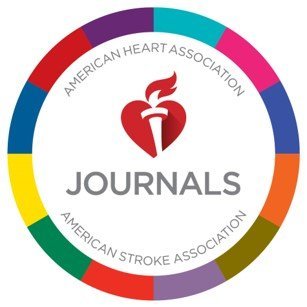
Hasanga Manikpurage
@HasangaDM
Followers
95
Following
671
Media
1
Statuses
123
Genetic of cardiovascular diseases Post-Doc Fellow @Cambridge_Uni @DPHPC 🇬🇧 PhD @universitelaval @IUCPQ 🇨🇦 MSc @univ_paris_cite @lvts🇫🇷 From 🇫🇷/🇱🇰
Paris, France
Joined March 2011
Wow!!! Many Thanks to @JeanetteErdmann, @konradtsawicki and @Circ_Gen for highlighting all the major points of our paper through this video!
⚡️ Now online from Thériault + team: A Polygenic Risk Score for #CoronaryArteryDisease Improves the Prediction of Early-Onset Myocardial Infarction and Mortality in Men https://t.co/H6Z85PAp4u
@AHAScience #AHAjournals #CardioGen 🎬 @JeanetteErdmann @konradtsawicki
1
2
10
📣New from Zamani et al! 📄Aortic valve-specific genes dysregulated in calcific aortic valve stenosis as potential biomarkers and therapeutic targets 🫀🧬 👉 https://t.co/Pw7P94SSRh
0
1
2
Thank you to all colleagues involved in this project, supervised by Dr. S. Thériault. Thank you also to all scientists and participants involved in @_CARTaGENE_ , @clsa_elcv and Biobanque de l’@IUCPQ.
0
0
1
- CAD-PGS is associated with the extent of coronary artery damage observed. - In this study, not all CV-PGS are associated with the severity of CAD; lipid-PGS are.
1
0
0
- Adding independent CV-PGS, in addition to a CAD-PGS, increases the performance of our models, with or without clinical risk factors (clinical interest +++)
1
0
0
- CAD-PGS and CV-PGS are not/only weakly correlated. Using them in a multivariable model provides better predictive performance.
1
0
0
Briefly: - Studied PGSs are all associated with the prevalence of myocardial infarction, suitable for a direct application in Canadians (from European ancestry).
1
0
0
📣 Clap de fin for my PhD work 🎬! The fourth and final article is now available in @CommsMedicine. We benchmarked a set of PGS for CV traits available from the @PGSCatalog resource in different Canadian cohorts🇨🇦. See more 👇🏽 - Link (OA): https://t.co/FQlOysUpML (1/5)
nature.com
Communications Medicine - Manikpurage et al. evaluate the association between existing polygenic risk scores (PRS) and myocardial infarction (MI) as well as the extent of coronary artery lesions at...
1
1
0
In patients with calcific aortic valve stenosis, lipoprotein(a) levels predict a higher risk of valvular and cardiovascular outcomes. #AHAJournals @HasangaDM @ClavelLabo @PPibarot @ArsenaultBenoit
https://t.co/owhTIoF3gq
0
5
14
2⃣Bridging genomics, transcriptomics, proteomics, and metabolomics In a rare combination of all 4 major omics layers, this study offers a great resource for dissecting the links between genetics, expression/slicing, molecular traits and disease risk 🔗 https://t.co/kIztaEwLAD
1
3
22
The common IL6R p.Asp358Ala missense variant is associated with 5% ↓odds for CAD (inhibiting pathway validated & more inhibitors in RCTs), & 5% ↓odds for rheumatoid arthritis (w approved inhibitors for pathway). New study shows even greater (10% ↓odds) for AAA.
0
4
19
Work supervised by Dr. Sébastien Thériault With many great contributors: @Jebou326, @egagnon_phd, @gobeil_emilie, @girard__arnaud, @YohanBosse, @ArsenaultBenoit and many others that don't have a twitter handle - From @IUCPQ, @universitelaval
0
0
2
Finally! Happy to share my 3rd PhD paper, now published in @ATHjournal! 🚀 This study explores the impact of integrating multiple independent lipid PRSs with a CAD-PRS for CAD incidence prediction in @uk_biobank. 👉🏽Link (Open Access! 📖): https://t.co/SCDXm5Lzcy
3
3
9
Great collaborative work spearheaded by @DrMArdissino @aidanbutty showing that, among those sustaining early-onset myocardial infarction, a CAD polygenic risk score was the strongest among assessed predictors of recurrent events https://t.co/xaQuZyqc39
@Circ_Gen
1
11
47
Lipoprotein(a) is an independent predictor for long-term in-stent restenosis and should be considered in the evaluation of patients undergoing PCI. https://t.co/4lUH5tnR2h
@escardio @AboyansV @SilCastelletti @PeroneFrancesco @andreagallardo #cvprev
2
158
482
London -> Barcelona by train ✅ (surprisingly easy! 🚄) Just arrived for the 2024 @nextflowio Summit, very excited to be delivering the keynote tonight on this mildly intimidating stage (tech tests ✔️, Segrada Familia ✔️ … we’re ready to roll)
0
2
22
The catalog of all possible SNVs altering existing upORFs or creating new ones (via both canonical and non canonical TIS) in human transcripts is available on the mobidetails platform ( https://t.co/Na1LRA5y66)
@soukarieh_omar @BPH_Research @univbordeaux_EN
Enhancing the annotation of small ORF-altering variants using MORFEE: introducing MORFEEdb, a comprehensive catalog of SNVs ... https://t.co/w5wO8h71Bo
#biorxiv_bioinfo
0
6
13
Our new study published in @NatureComms, led by Ghislain Rocheleau and team. Using TOPMed WGS data, estimate heritability of CAD is 34%. Ultra-rare variants with low LD score contribute ~50% of the heritability. Enrichment in several functional processes. https://t.co/k7bFrUlcsb
nature.com
Nature Communications - Whole genome sequences enable discovery of rare variants which may help to explain the heritability of common diseases. Here the authors find that ultra-rare variants...
0
16
60
>5000 Polygenic scores now available at https://t.co/63bPMToDLE! As of today's release we've broken 5k PGS, indexing data from 673 unique publications. A big thank you to the authors submitting their data and our team in pursuit of #openscience, #FAIRdata, and reproducibility!
0
19
44
Fantastic @Nature News Feature by @AnilOza16- Why does heart disease affect so many young South Asians? Highlights our ambitious goals with @ourhealthstudy & others like @masala_study. https://t.co/LWjZ9WYuh0 💜 https://t.co/htwIQvmA5l 💜 @HeartDocSadiya @alka_kanaya @NammiKan
1
37
103














